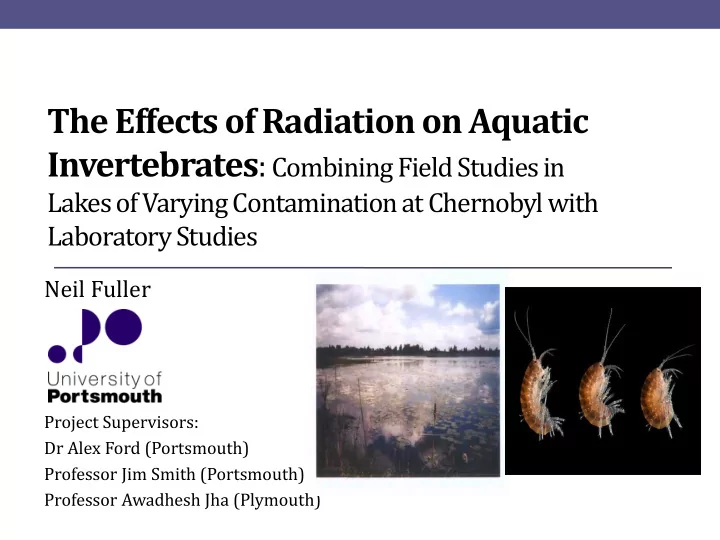

The Effects of Radiation on Aquatic Invertebrates : Combining Field Studies in Lakes of Varying Contamination at Chernobyl with Laboratory Studies Neil Fuller Project Supervisors: Dr Alex Ford (Portsmouth) Professor Jim Smith (Portsmouth) Professor Awadhesh Jha (Plymouth)
Rationale/Background • Lack of studies in the natural environment regarding biological effects of long-term chronic exposure in aquatic invertebrate populations • Assessment of biological effects across multiple species is necessary for remediation of past and future radioactive releases • Combined laboratory and field studies are required to assess applicability of lab data to natural populations • Controversy regarding the doses at which significant impacts occur to natural populations
Project Aims • To elucidate the biological effects of ionizing radiation on aquatic invertebrate species using a number of phenotypic and genetic endpoints and establish the level at which these effects occur in the field • To compare the radiosensitivities of freshwater and marine aquatic invertebrate species • To assess the applicability of laboratory exposures to field populations
Research Outline – Laboratory Exposures Sperm Counts Control Population Gammarus pulex – Freshwater 0.1 mGy/d -1 Amphipod Species 1 mGy/d -1 10 mGy/d -1 Viability Assays Echinogammarus marinus – Marine Amphipod Species Comet Assay
Research Outline – Field Studies: Chernobyl & Belarus Fluctuating Asymmetry Population Parameters Asellus aquaticus – Freshwater Isopod Species Genetic Diversity - AFLP
Recommend
More recommend